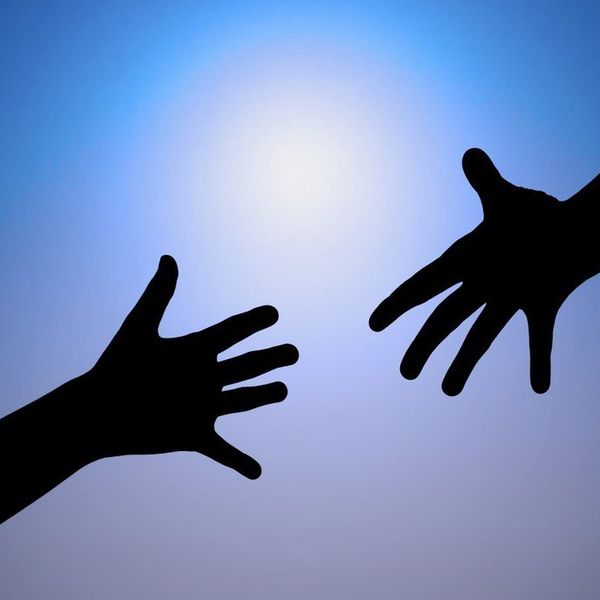A couple of weeks ago I went through one of the most traumatic experiences of my life. As a person who considers myself a mental health advocate, I thought I knew just about as much as there is to know about mental health policy in the US. I was wrong. And it took a personal nightmare to learn that.
I've struggled with an eating disorder on and off for almost half of my life, cycling through restriction and bingeing and purging behaviors. With big changes and the introduction of new stressors in my life last year, I relapsed and became very sick with what's essentially by-the-book bulimia nervosa.
When I noticed that things had gotten out of hand and I was no longer in control of my behaviors, I did what I thought I was supposed to do and reached out for help. I sought out treatment from a dietitian, therapist, and doctor, and genuinely tried to get better. But if there's one thing I've learned throughout the years, it is that recovery is not a linear process; there are ups and downs and things often get worse before they get better. So when I started seeking out treatment, things did get a bit worse, but I was receiving proper support and care to where things were being managed.
That was, until one really rough night. After a conversation that was really triggering, I took a gross overdose of laxatives and diet pills and had to go to the emergency room for medical attention. At the hospital, they took a history where I told them about my bulimia, the treatment I was receiving, and past mental health treatment I've received including a psychiatric hospitalization for suicidal ideation a little over a year ago. In the process of moving through the ER, I iterated six different times that I had no intention of harming myself. However, I know now that my history of treatment for suicidal ideation and depression override my honesty in talking with different providers at the hospital. Lesson number one: people with mental illness/mental health struggles are only to be judged by their paperwork.
I was hooked up to an IV in the hospital to balance my potassium, sodium, and phosphate levels, and told that in the morning I would talk to the hospital psychiatrist. Later that night, I was moved to the psychiatric ward without consent or notification and told again that the psychiatrist would see me in the morning. In the morning, I was told for the third time that the psychiatrist would see me between 9 am and 12 pm. At 12:30 pm, I learned that the specific hospital I was in actually did not have a psychiatrist at all when two police officers walked into my room, put me in handcuffs, and drove me two hours away to a psychiatric hospital on a 5150, or Involuntary Commitment.
This 5150 essentially means that a person is a danger to themselves or someone else. And in the state of North Carolina, anyone can take out a 5150 on any other person—if a magistrate or judge signs it, the person will be held for at least 72 hours and have a public record. I learned that it's common for bitter spouses to take out 5150's on each other to "get some space" and because Magistrates hardly ever read what's placed in front of them in depth, many people who are no danger to anyone at all have to spend time in a hospital because of this lazy law. In my case, I was not a danger to anyone or myself. I was receiving outpatient treatment and only had minor medical complications.
When I was transferred to the psychiatric hospital two hours away from my home (the law also states that location has no bearing on the facility that is chosen for an involuntarily committed person — the hospital simply goes down a list of facilities and sends the person to the first place that will accept them), my first priority was getting out as soon as possible, not only to attend school, but to attend the outpatient appointments I had set up for the next week. However, because of how packed the psychiatric hospital was and the limited number of resources, it took two days to see a doctor, and three days to see my care coordinator, both of which whose signatures I needed in order to be released. Because of how slowly paperwork moves in these places and the number of patients that have to be processed through the system every day, my 72-hour-hold was a five and a half day stay.
There were a number of other missteps made by both hospitals in this process, and I can only imagine how detrimental they could have been for someone in a more severe situation than me who needed more help. For example, the doctor assigned to me messed up my medication dosing and I was only given a third of my medications for a week. I was also never given a form to legally release information about my care to myself or anyone else so my parents had no idea where I was at first and I was given extremely limited information too.
As an advocate, I've always fought for more comprehensive mental healthcare. However, I never considered the other side of things. What happens when a person is given forced mental healthcare they don't need? Not only was it a traumatic experience for me, but people in my situation only clog up the system more so that those who truly need mental healthcare have limited access to comprehensive resources. There needs to be a change.



















